On September 25, Shmuel Oren, an IEEE Fellow, INFORMS Fellow, and member of the US National Academy of Engineering, was invited to the Department of Electrical Engineering and Applied Electronics (EEA), Tsinghua University to deliver a special academic report titled “Stable and Fair Uniform price Allocations of Community Aggregation Gains in Retail Electricity Markets.” The event was attended by Professor Kang Chongqing, Dean of EEA, Professor Guo Qinglai, Associate Professor Wei Wei, Assistant Researcher Guo Hongye, Associate Professor Guo Ye from the Tsinghua-Berkeley Shenzhen Institute, Associate Professor Liang Yong from the School of Economics and Management; and Assistant Researcher Dai Jing from the Energy Internet Research Institute of Tsinghua University. The report was chaired by Professor Guo Qinglai and organized by Assistant Researcher Guo Hongye.
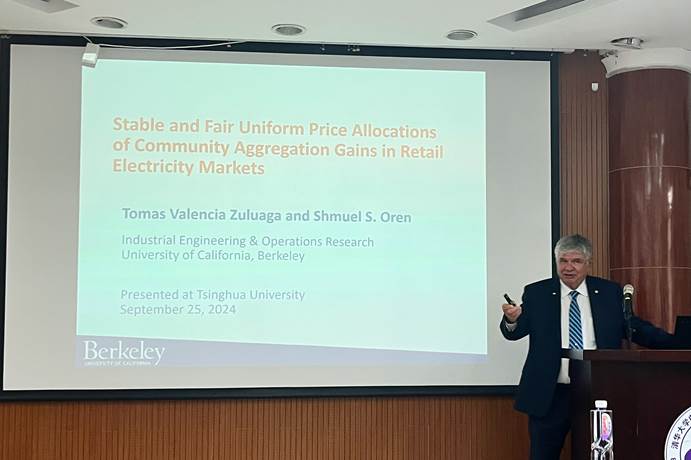
Professor Shmuel Oren giving academic report
Professor Shmuel Oren's report focused on the distribution of benefits among different entities within community clusters against the backdrop of increasing penetration of distributed energy. He designed a unified pricing method for buying and selling based on principles of stability and fairness. The report began with a simple case study, first constructing a linear production cooperative game model considering the stability of community alliances. Based on this, he proposed an optimization framework for estimating a fair unified price and introduced a sampling method for effectively implementing this framework. Professor Oren’s teaching was clear and in-depth, providing substantial benefits to the attending faculty and students.
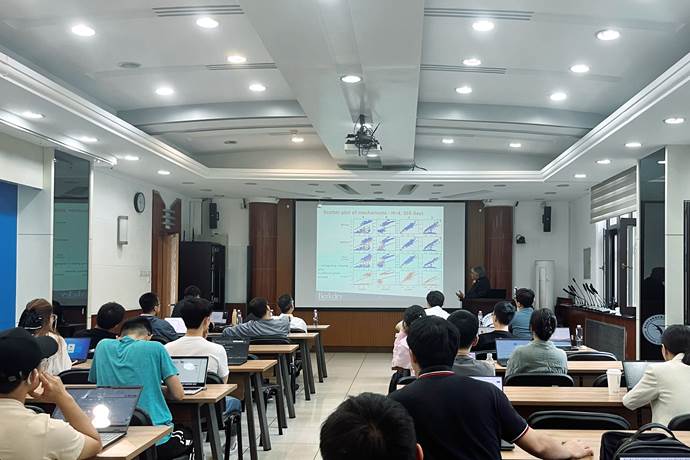
Academic report
After the report, attendees engaged in lively discussions and exchanges related to the content. Students raised questions based on their own research directions, including issues of fairness caused by pricing deviations under different constraint combinations, the applicability of the unified pricing method, evaluation methods for different benefit distribution methods, potential interactions between pricing mechanisms and user energy consumption patterns, and the application prospects of related research in the microgrid field. Professor Oren provided detailed answers to all inquiries.
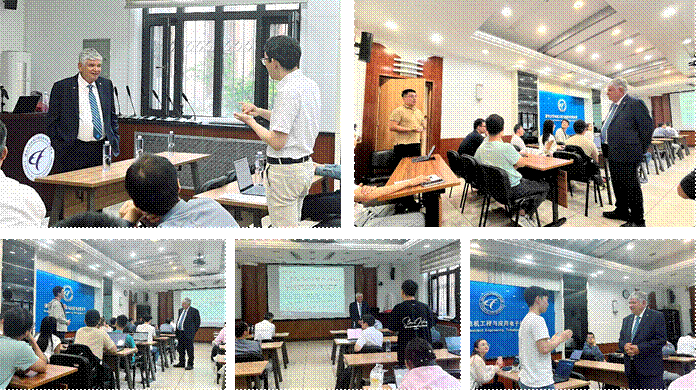
Teachers and students shared their views with Professor Shmuel Oren
Following the report, Professor Oren was invited to participate in a special seminar with faculty members Guo Qinglai, Wei Wei and Guo Hongye from EEA, Xu Qingyu from the Energy Internet Innovation Research Institute, and Guo Ye from the Shenzhen International Graduate School to discuss academic career development planning. The seminar was chaired by Professor Kang Chongqing. Professor Oren addressed the confusions experienced by faculty members at different stages of their careers regarding personal development, student training, and work focus, providing targeted guidance that greatly benefited the attendees.
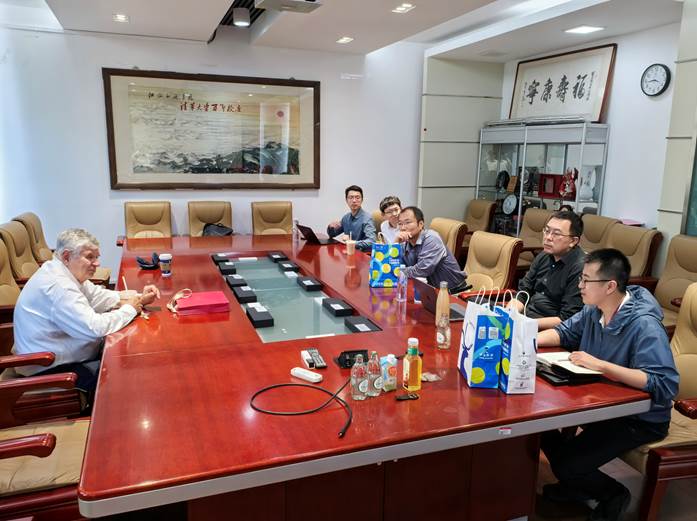
Seminar of teacher representatives and Professor Shmuel Oren
Finally, participating faculty members took a group photo with Professor Oren, marking a successful conclusion to the event.
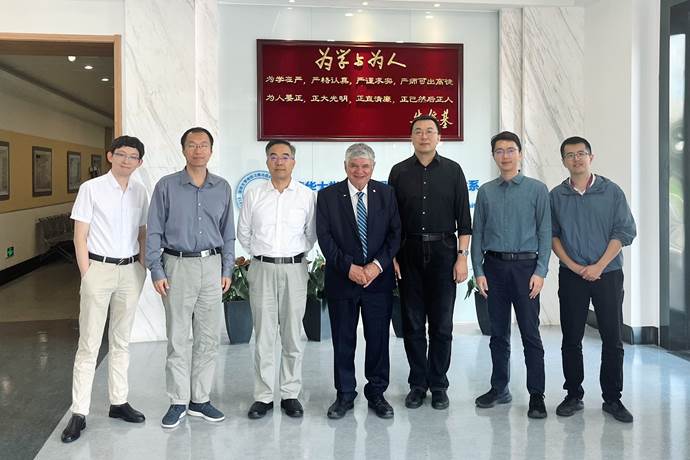
Group photo of Shmuel Oren and teachers
Professor Shmuel Oren received his Ph.D. from Stanford University in 1972. He is currently the Earl J. Isaac Chair of Decision Science and Analytics in the Department of Industrial Engineering and Operations Research at the University of California, Berkeley, the site director of the Power Systems Engineering Research Center (PSerc) in Berkeley, a professor at the Tsinghua-Berkeley Shenzhen Institute, and a member of the Scientific Advisory Board of the Institute of Energy Economics at the University of Cologne, Germany.
Professor Oren has expertise in operations research, particularly in optimization and mathematical modeling and analysis of economic systems. Over the past thirty years, he has focused on developing analytical models and tools for market mechanisms and pricing strategy design and economic analysis within the private and public sectors, especially in regulated industries such as the electricity sector. His work in power system optimization scheduling, transmission planning, bidding design, congestion management, transmission rights, generation adequacy mechanisms, and ancillary service market design has been adopted by electricity markets in the U.S. and worldwide, significantly influencing electricity market design and regulatory policies.

















 News & Events
News & Events